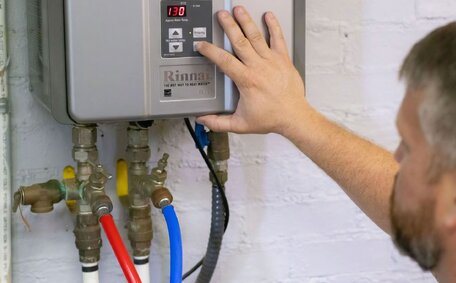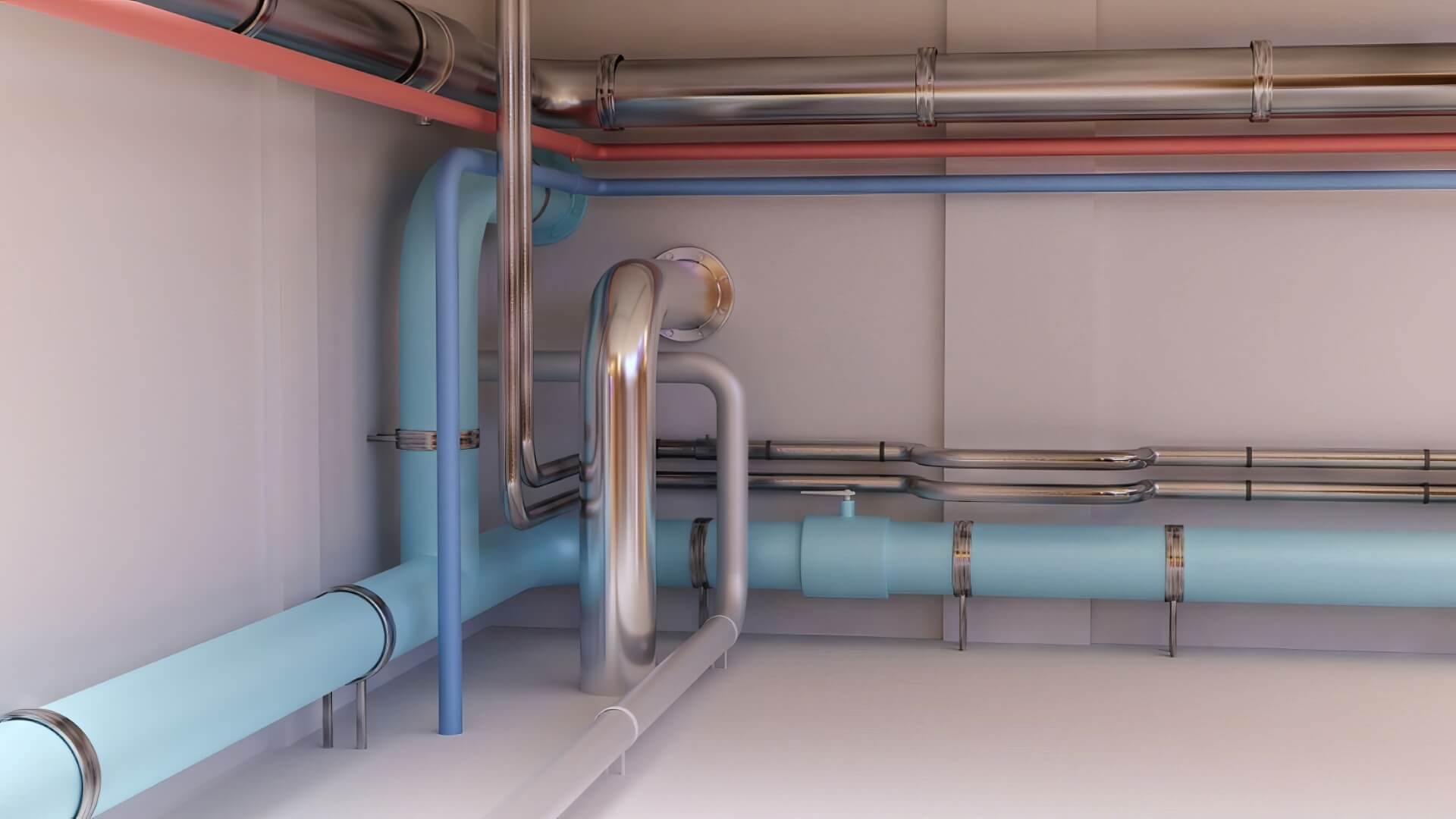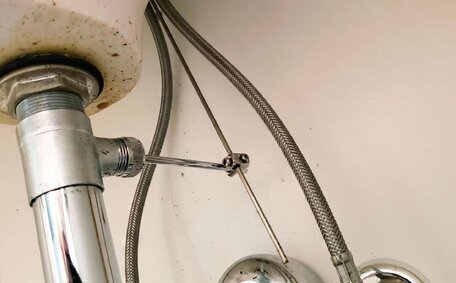Understanding Gas Leaks and Their Dangers
Although natural gas powers appliances, provides heating and hot water, gas leaks pose significant safety risks in your home. Despite its convenience, gas leaks in your home can be extremely dangerous. Natural gas is odourless, and to facilitate detection, a 'rotten eggs’ smell from mercaptan is deliberately added so that any leakage can be identified promptly. If inhaled, a natural gas leak can replace oxygen in the lungs, posing serious health risks. Gas leak episodes in your house can cause danger of fire or explosion if ignited.
Being alert to gas leak signs in your home, like hissing sounds, off-colour flames, dead vegetation near gas lines, and physical symptoms such as dizziness or nausea, is crucial.
Recognising the signs of gas leaks before they become major issues, using detection methods swiftly and evacuating the area, is key. Ignoring gas leaks can lead to fatal outcomes, including asphyxiation, explosion risks, or carbon monoxide poisoning, particularly in poorly ventilated spaces. For the sake of your health, addressing issues that could sign gas leaks promptly by enlisting a skilled gas plumber to manage the issue in your home is essential.
Detecting a Gas Leak: Signs and Symptoms
One key sign to watch for when detecting a potential gas leak is the 'rotten egg’ smell.
Detectable indications such as yellow/orange flames rather than blue, and wilted plants near your gas lines, can reveal there gas leak before it results in a gas lpg escape, as the gas replaces oxygen.
Unexpected faults in gas appliances can also suggest there gas leaks may occur, potentially resulting in flu-like symptoms, including headaches, nausea, and dizziness. These are one most common physical indicators that warrant immediate action in case carbon monoxide poisoning is occurring. Use a dependable gas leak detector for additional assurance in confirming leaks.
When any signs are detected, it’s critical to assess gas concentrations, secure the area, and turn off the gas supply if it’s safe to do so and seek professional assistance immediately by calling emergency numbers.
Using Your Senses: Smell, Hearing, and Sight
A strong 'rotten egg’ smell is intentionally added to natural gas to facilitate its detection by smell. You may also detect a hissing whistling sound as gas escapes from pipes and lines under high pressure.
Assessing the colour of your stove flame is vital; a blue flame signals proper combustion and the absence of gas leaks.
Yellow, orange, or non-blue flames can signify improper combustion and indicate that a leak can be present. Finally, observe plants and grass around your home, especially in your kitchen vicinity, near gas equipment—if vegetation appears dead or distressed, gas may be displacing oxygen in the soil.
It’s crucial to trust your senses fully when assessing any potential gas leakage, considering also the subtler physical signs symptoms. Ultimately, when you suspect gas leak due to odd smells, sounds, sights, or health cues, treat these as urgent alerts that require swift response—evacuate the building, eliminate ignition sources, shut off the main gas valve, ventilate if safe, and summon immediate professional help.
Electronic and Physical Detection Methods
Devices like electronic gas detectors can identify signs of a gas leak in combustible gases and are crucial for effective leak prevention on your property. Consider installing NATA-certified gas leak detectors connected to an alarm system. Audible alerts from gas detection systems provide warning of dangerous gas concentrations.
A simple DIY detection method is the soapy water test for checking pipe joints and connections, seeking bubbling that indicates gas leaks and the telltale rotten egg odour. Perform soapy water tests by applying a 50:50 dish soap/water solution with a paintbrush or spray bottle, then look for bubble formation, which signals escaping gas. This method checks for external leaks.
Employing several ways to detect gas like using your senses, observing symptoms, employing electronic detectors, and DIY tests are effective in spotting gas leaks before they escalate. Together they facilitate early leak detection and prompt response by gas professionals to ensure everyone’s safety.
Confirming a Gas Leak
If signs of potential leaks are present, take steps to ensure the security and proper functioning of all your gas lines appliances. If all gas appliances are off and the meter’s dials are still moving, this suggests gas is still flowing through your pipes. Compare recent gas bills for abnormalities like sudden spikes which could signal an unusual amount of gas usage that could reveal a leak.
Consider acquiring an electronic gas leak detector to check for any gas irregularities in your home.
Avoid turning any electronics or lights on or off, eliminate all ignition sources, and refrain from using phones or devices in the area until it is safe.
Immediate Response Steps When a Gas Leak is Suspected
If a gas leak is suspected, immediate action is critical.
Avoid handling any electronics or manipulating light switches during evacuation or when near gas, as sparks generated could ignite the leak. Refrain from smoking and eliminate all other ignition sources. Do not operate any vehicle engines near the leak.
If it’s safe and you suspect a cause gas leak, turn off your main gas valve to stop the flow and open all access points to air out your home and dilute the gas concentration. Turn off the main gas supply valve outside or contact your gas utility provider to shut off service remotely. Use caution not to inadvertently turn it back on.
Do not return to the property until gas emergency crews confirm it is safe to re-enter. Licensed gas technicians will use gas leak detection equipment to identify leak locations, then complete repairs and ensure that gas concentrations are at safe levels throughout the space.
Evacuating the Area
If a gas leak is suspected, the top priority is to immediately evacuate everyone from the building. Instruct everyone not to waste time collecting personal belongings or attempting to identify the leak source.
Call gas emergency services from an outdoor area where gas is not present right away. Wait at the designated meetup spot so first responders can account for all occupants. Under no circumstances should anyone re-enter the building until emergency crews indicate it is safe to return.
Technicians will then identify gas issues, conduct thorough leak detection, complete repairs to stop the leak, and monitor gas levels throughout the property to ensure concentrations have lowered to secure thresholds before allowing re-entry.
Avoiding Ignition Sources
In the event gas leak occurs, it is critical to avoid all potential ignition sources, as leaking gas can explode if exposed to a spark or flame. Do not turn any lights or electronics on or off, and refrain from using any electrical device whatsoever while inside.
If it’s safe, during a suspected leak, turn off your main supply valve to stop the gas flow, taking care to avoid creating sparks.
Ventilating the Area
If it’s safe to turn off the gas supply during a leak, ventilating the area is a vital safety precaution. If safe, open all doors and windows to help disperse any gas before evacuating. This action helps disperse the gas air mixture and reduce harmful concentration levels within your living space. However, refrain from operating your ac units or fans in the vicinity of the leak, as sparks can ignite the gas.
Ventilation should not delay evacuation. Call emergency services and gas technicians right away.
After opening air flow paths, everyone should promptly exit the building and move to a designated outdoor meeting spot far from the leak location. Permit accredited experts to thoroughly check gas concentrations inside your premises before granting re-entry. Technicians can then stop the leak and monitor air quality to confirm safety.
Professional Help for Leak Repairs
Qualified professionals should always address gas leaks, so do any reaching out to experts and avoid DIY attempts. Contact Glenwood Plumbing on 1300 349 338 or at [email protected] for swift and reliable gas leak assistance. Our technicians know how to address any gas leakage and can provide help right away for residential and commercial clients across Sydney.
When gas issues are reported, our team will promptly assess the property with advanced leak detection equipment to pinpoint leak locations. We ensure that gas leaking concentrations have lowered to secure levels across the entire home or building before giving the all-clear to reoccupy the space.
All repairs are then carried out to the highest industry safety standards. Client safety is our top priority.
Leaks can cause gas leaks and, if left unaddressed, pose serious explosion and health risks due to oxygen depletion and carbon monoxide accumulation. Safeguard your home from potential dangers by trusting our experts with any issues for those who use natural gas, managed safely and efficiently.
Don’t be off your guard; call Glenwood Plumbing at the first sign of an issue. We have the tools and experience to solve all gas line problems.
Choosing a Qualified Professional
In a gas leak situation, engaging a reputable, licensed gas fitter is critical. Verify technicians are qualified gas fitters by requesting to see their Gas Work Licence and Trade Certificate. Ask about their experience with leak detection and repair.
Choose your local plumbing company capable of gas leak assessments, familiar with the piping systems specific to your vicinity – for instance, Glenwood Plumbing caters to Sydney’s Glenwood region.
During your initial call, know what to do next by judging communication responsiveness and clarity. Ask if they utilize state-of-the-art leak detection technology.
Choose a professional willing to explain the process and provide Licence credentials.
While cost is a factor, safety and ensuring a technician’s qualifications and expertise should be the primary concerns.
An established local company like Glenwood Plumbing with a track record of reliable service and transparency around processes, costs, and credentials makes for a sound choice.
The Leak Repair Process
When a gas leak is identified, stopping the leak quickly and safely is the top priority. Our technicians utilize sophisticated equipment to precisely locate the source of leaks in gas lines or appliance connections.
We promptly conduct pressure tests to verify pipe and component integrity as soon as possible, addressing any concerns immediately. IfNeeded
Once the leak is repaired, we reassess all affected areas with electronic gas detectors to confirm that gas levels are safe according to health and safety standards. Your safety remains our focus throughout the entire process.
Preventing Future Gas Leaks
Ensure to examine flexible connections, like those associated with propane natural gas lpg appliances in your home, as they can degrade over time. Regularly check your gas pipes for corrosion and repaint them as necessary to prevent rust. Keep the gas metre area clear of debris and equipment that could obstruct emergency access.
Consider installing UL-certified detectors sensitive to propane natural gas compounds, complete with a battery backup connected to an alarm system.
Models with remote shut-off capabilities can automatically cut gas flow at the metre when dangerous concentrations are detected. Although there are costs, gas detectors offer continuous monitoring and quicker response than relying only on your senses, with some models able to automatically shut off gas flow when dangerous levels are detected.






